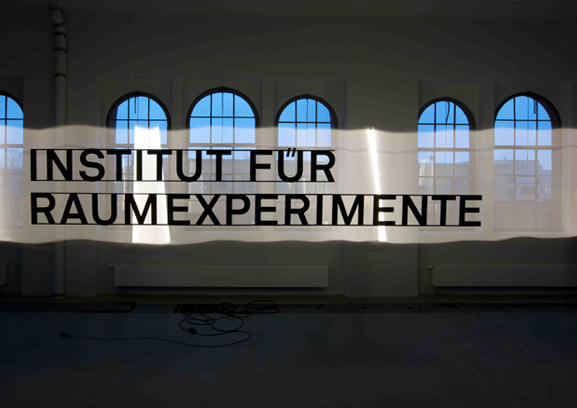About

Five Years of Institut für Raumexperimente: We have only just begun
The Institut für Raumexperimente e.V. (Institute for Spatial Experiments) developed out of the Institut für Raumexperimente, Berlin University of the Arts. Since January 2015, the Institut für Raumexperimente e.V., a non-profit registered association (e.V.), maintains the institute’s comprehensive online archive.
The Institut für Raumexperimente was affiliated with the Berlin University of the Arts from 2009 to 2014 as an experimental education and research project, led by its founding director Olafur Eliasson together with co-directors Christina Werner and Eric Ellingsen. It was supported with funding from the Senate Department of Education, Youth and Science of the State of Berlin as part of its programme of excellence Wissen schafft Zukunft (Knowledge Creates the Future) and grants from the Einstein Foundation Berlin. The institute was housed in the same building as Studio Olafur Eliasson, so that school and studio would mutually benefit from their respective activities, and the institute expanded the university into the broader city of Berlin.
One of the central tenets in the methodology of the Institut für Raumexperimente was to curate learning situations of uncertain certainty. These teaching experiments allow unexpected and surprising ideas and energies to emerge from within the unique micro-ecologies of international guests, practitioners, educators and scientists participating across an expanse of different disciplines. Collaborations with international universities, different institutions and manifold collaborators were central to these education experiments.
For the past five years the Institut für Raumexperimente has been building a methodological model for alternatives in art education. This model is not something to be imitated – not a model for mimicry and imitation, but rather is an activator, a cultural catalyst for the right here right now, a now that resonates in the rest of the world. The Institute’s model allowed the unique micro ecologies and needs of the place or institution to shape their own direction. The purpose of this education model has been to help think and work critically at the same time, and at the same time be organically grown into a particular place – for us Berlin – without excluding the rest of the world.